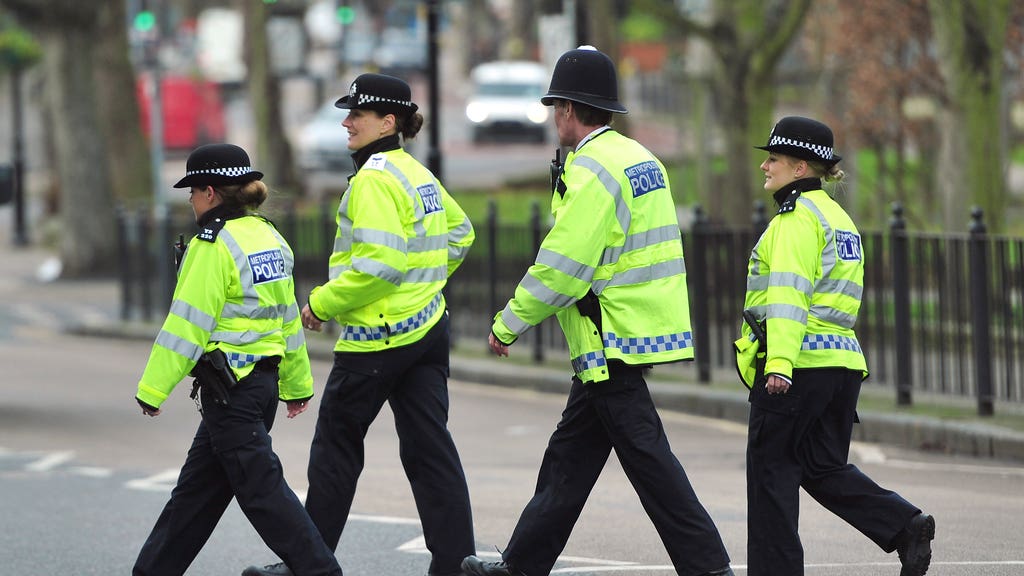Home Office sued over ‘racially disproportionate’ new stop and search rules
Exclusive: Campaigners warn scrapping safeguards would allow police to ‘harass communities with racially discriminate practices’

Human rights groups are suing the Home Office over its decision to increase police stop and search powers, The Independent can reveal.
Liberty and StopWatch argue plans to remove safeguards in current legislation designed to limit discrimination risk are unlawful and will result the tactic being deployed more by officers.
The groups said in a pre-action letter sent to Priti Patel in September that changes would disproportionately affect black people, who are already up to 18 times more likely than white people to be subjected to “suspicionless” stop and search.
The government announced in July it will be expanding blanket stop and search powers, known as Section 60, as part of its Beating Crime Plan, which gives police officers the right to search people without reasonable grounds in areas where serious violence could break out.
Under the new rules, Section 60 could be authorised by a lower-ranking officer and kept in place for longer. Current guidelines, known as the Best Use of Stop and Search Scheme (BUSSS), stipulate powers can only be triggered by a high-ranking officer in “exceptional circumstances”.
Campaigners have now launched legal action after the home secretary did not respond to the letter by the 13 October deadline.
Lana Adamou, a Liberty lawyer working on the case, said: “We all want to feel safe in our communities, but the police have consistently shown that they do not use stop and search fairly or proportionately, so increasing these powers isn’t how we get there.
“Not only are Section 60 stops ineffective at detecting and reducing knife crime, they disproportionately target people of colour, particularly black people.
“Widening police powers under Section 60 will worsen existing divisions between police and communities at a time when public trust and confidence in the police is at a serious low. Removing safeguards will see more young people of colour, including children, subjected to further coercion and control, and reveals the home secretary’s indifference to systemic and institutional police racism.”

She added: “Instead of handing the police ever greater powers, the government should repeal suspicion-less stop and search powers like Section 60. We need community-led interventions through investment in health, education, housing and social welfare - and for those in power to work with communities to develop strategies for keeping all of us safe which have human rights at their heart.”
BUSSS was introduced in 2014 by then-home secretary Theresa May in a bid to address the high levels of racial disproportionality in stop and search. All police forces in England and Wales signed up to the safeguards at the time.
Habib Kadiri, StopWatch research and policy manager, said: “The Best Use of Stop and Search scheme was the first concerted effort by a home secretary in decades to tackle flagrant abuses of authority by police forces.
“The scheme showed some signs of progress too: when police operations were held to stricter standards, Section 60 use fell 99 per cent with no negative impact on knife crime, proving the redundancy of the vast majority of searches under the power.
“Developing trust among overpoliced communities depends on curbing police excesses and bringing their operations to heel. Removing the safeguards instead sends the message that the police can continue to harass those communities with racially discriminate practices using an almost wholly ineffective power. This must not be allowed to happen. We are determined to hold the police to account.”
The Criminal Justice Alliance (CJA) recently wrote an open letter to the home secretary and submitted a Freedom of Information request calling for the evidence behind the decision to relax conditions around section 60.
Three months later, they have yet to receive a response.

The Home Office’s own analysis from 2019 found scrapping the BUSSS safeguards will result in more people being stopped and searched.
While the Government’s decision to do so is based on the premise that increasing stop and search reduces knife crime, available figures indicate that this form of stop and search has no real effect on knife crime, and only one per cent of searches result in a weapon being found.
Ms Patel’s announcement came two months after the Criminal Justice Alliance (CJA), a network of 160 organisations, launched a super-complaint calling for the power to be repealed. She pledged that it would “cut crime and deliver a safer society for the public”.
A Home Office spokesperson told The Independent: “Stop and Search is a vital tool for removing dangerous weapons from our streets and every weapon seized is a potential life saved. That is why we have empowered 9,000 more officers to authorise use of these powers in anticipation of serious violence.
“This approach is working, in the last year, stop and search has removed over 11,000 weapons from the streets and resulted in over 74,000 arrests.
“No one should be targeted because of their race and extensive safeguards, including statutory codes of practice, body worn video and College of Policing guidance exist to prevent this.”
Join our commenting forum
Join thought-provoking conversations, follow other Independent readers and see their replies
Comments
Bookmark popover
Removed from bookmarks